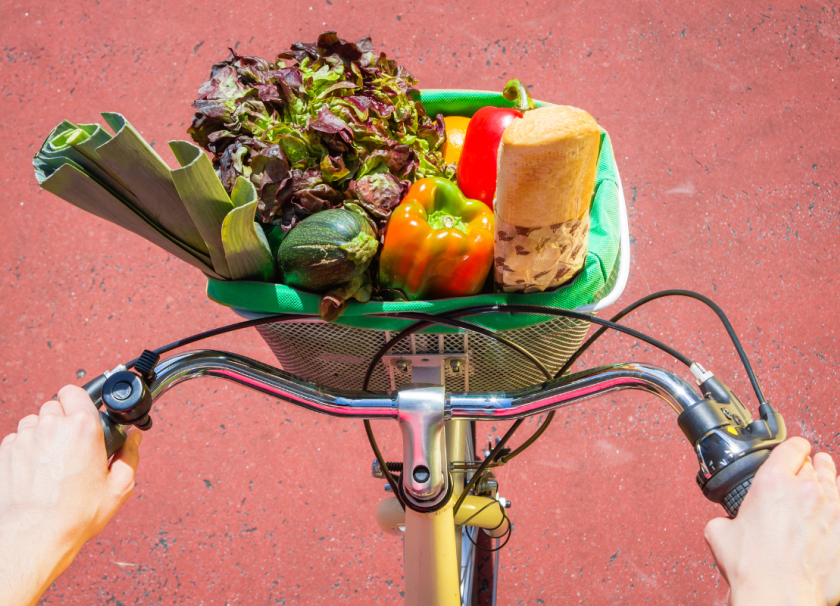
Bicycle Benefits
Here at the Co-op we are on a mission to promote healthy lifestyles and sustainable practices within our community. One way we do that is with our continued participation in the Bicycle Benefits program which aligns perfectly with our commitment to sustainability.
Not familiar with Bicycle Benefits?
The Bicycle Benefits program is a community-driven initiative designed to encourage cycling by offering rewards and incentives to folks who ride their bike. You start by purchasing a Bicycle Benefits sticker (which you can do here at the Co-op) and then stick it on your helmet. This sticker serves as a membership badge that can be shown at participating local businesses, from cafes and restaurants to retail stores and service providers, all offering special deals to bikers who show their sticker. By promoting biking as a sustainable mode of transportation, Bicycle Benefits not only supports local economies but also contributes to healthier, more environmentally friendly communities.
To those who already participate, we appreciate your enthusiasm for the Bicycle Benefits program! Your participation helps promote a healthier lifestyle and supports our commitment to sustainability.
To ensure the program's integrity and fairness for all participants, we will be implementing a small change to our discount policy. Starting June 1, 2024, the 5% discount will be limited to a maximum of $5 per shop.
We believe this change will help maintain the program's intended benefits, ensuring that the rewards go to those who are making an effort to bike to the Co-op and reduce their carbon footprint. And you can always stack your Bicycle Benefits discount with other discounts such as your Owner Coupon!
We always look forward to seeing our community riding their bikes to the Co-op and we thank you for being part of our journey towards a more sustainable future!
More Co-op News
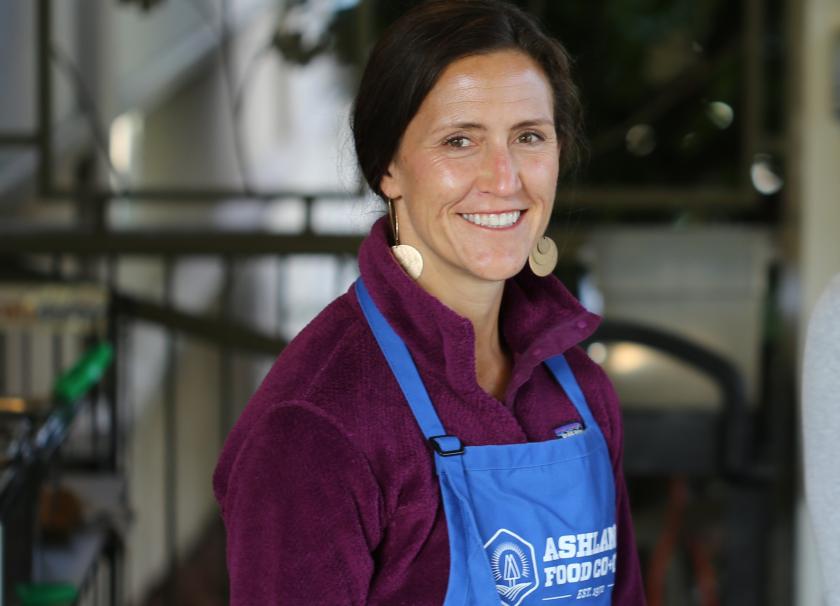
Lisa Beam: Why I'm a Board Member
Why serve on the Board of Directors at the Ashland Food Coop? This was the question that I was faced with about a year ago.
I have lived, worked and shopped in Ashland for the last 20 years. Many of those years I have actively participated on non-profit boards, civic organizations and committees. However, in the last few years I stepped away from those responsibilities to focus on family and business life.
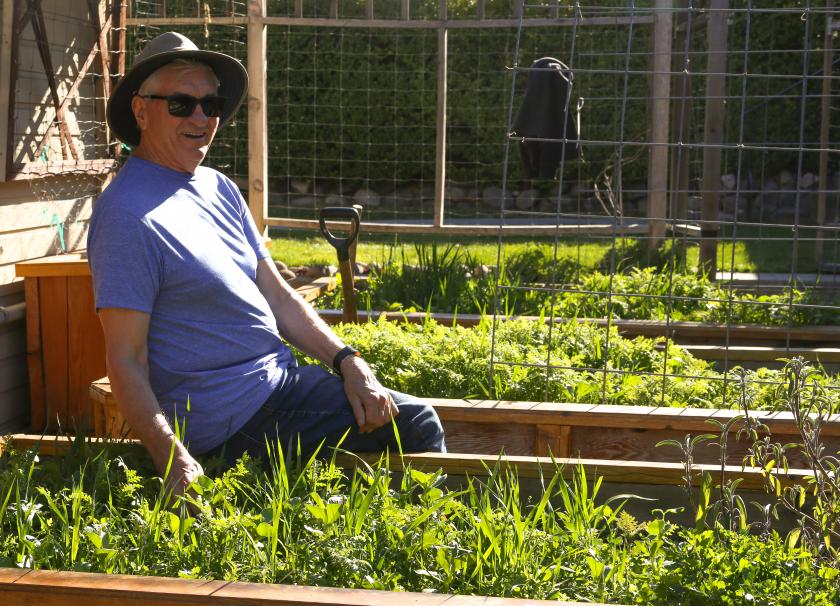
Henry in the Garden: The Pollinator Plan
By Henry Herting, Co-op garden volunteer
It's that fun time of the year when we get to plan our gardens. This year since our pollinators are taking such a hard hit, we are planning a pollinator garden.
Some plants that are considered good for pollinators are not so good fo the gardeners. They are invasive; they are weeds. Nobody likes weeds in their garden - who likes getting down on their knee pads and clawing at deep-rooted weeds growing in places where you don't want them?

Rogue To Go at the Co-op
We are excited to announce the official launch of Rogue To Go at the Ashland Food Co-op!
Rogue To Go is a reusable container pilot program. The pilot connects five participating restaurants by offering a reusable container that can be used for meals to-go and help eliminate single-use boxes. These O2GO containers are made locally in Bend, Oregon by OZZI. The bright green containers are 100% recyclable through a specialty recycler - truly zero waste!
How can you start using Rogue To Go? Check out the steps below and follow along with a walk-through video.
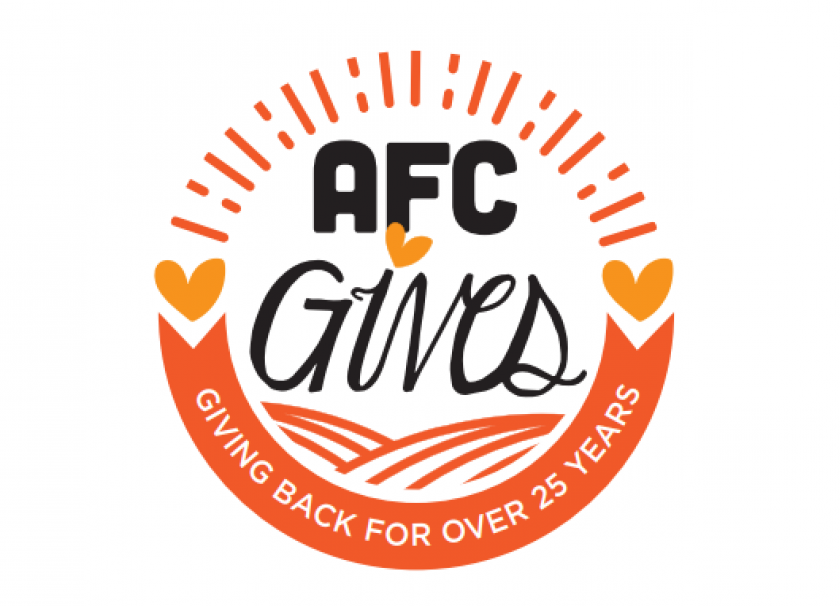
Apply for an AFC Gives community grant
For over 25 years, the Ashland Food Co-op has been re-investing in the local community by awarding grants to non-profit organizations doing important work in the Rogue Valley. Putting the seventh cooperative principle, "concern for community," into action, over $30,000 was donated in 2019 - and in 2020, there are even more opportunities for non-profits.
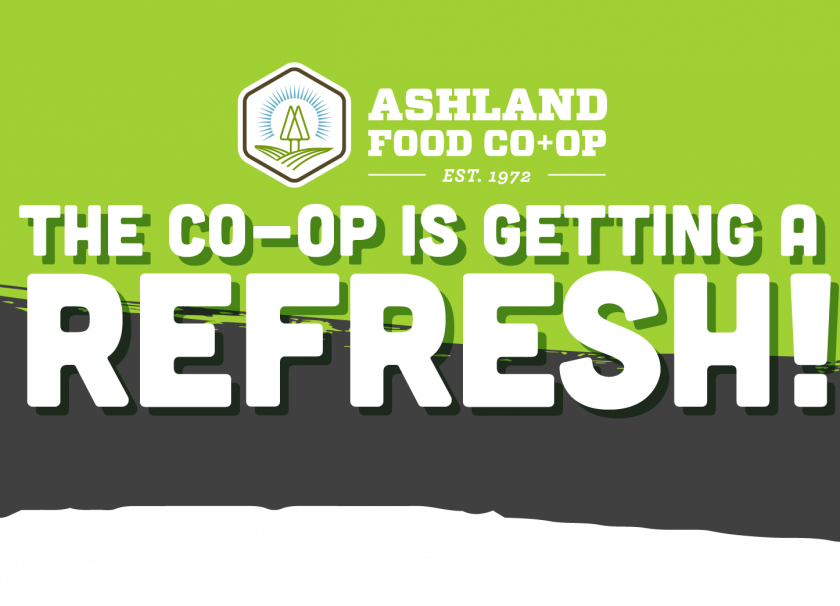
The Co-op is getting a refresh
We are giving our store a much-needed fresh coat of paint. We think you'll enjoy the changes!
When
The painting team will begin our project on February 5th, 2020 with a start time of 9pm.
Where
The entire retail store, deli serving area and interior seating area will receive a fresh new coat of paint.
Timeline
If all goes as planned, our painting project should be finished by February 20.
Will Store Hours Change?
No. We will be painting from 9pm to 5am.
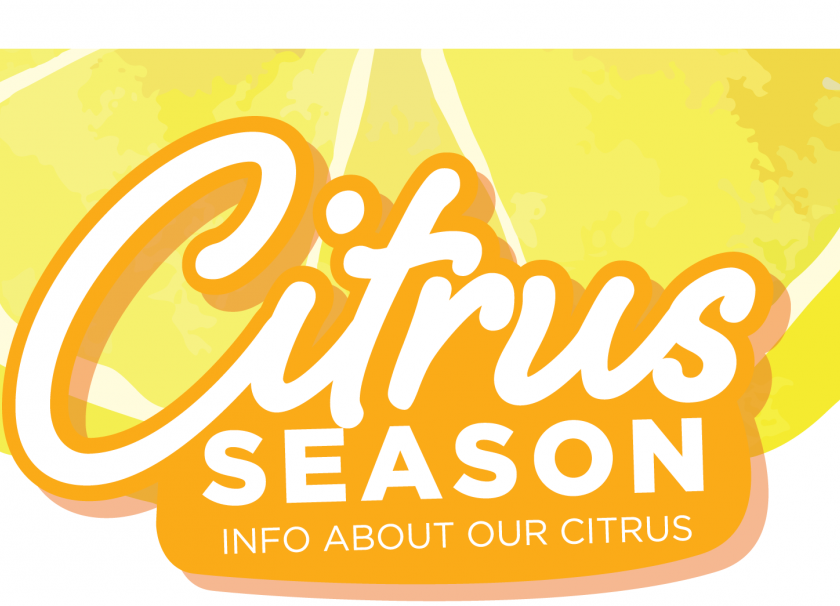
Explore citrus!
Looking to explore some new citrus varieties? Know more before you go! Check out the many types of sweet, sour and somewhere in between that you can enjoy at the Co-op! (Availability may vary due to seasonality.)
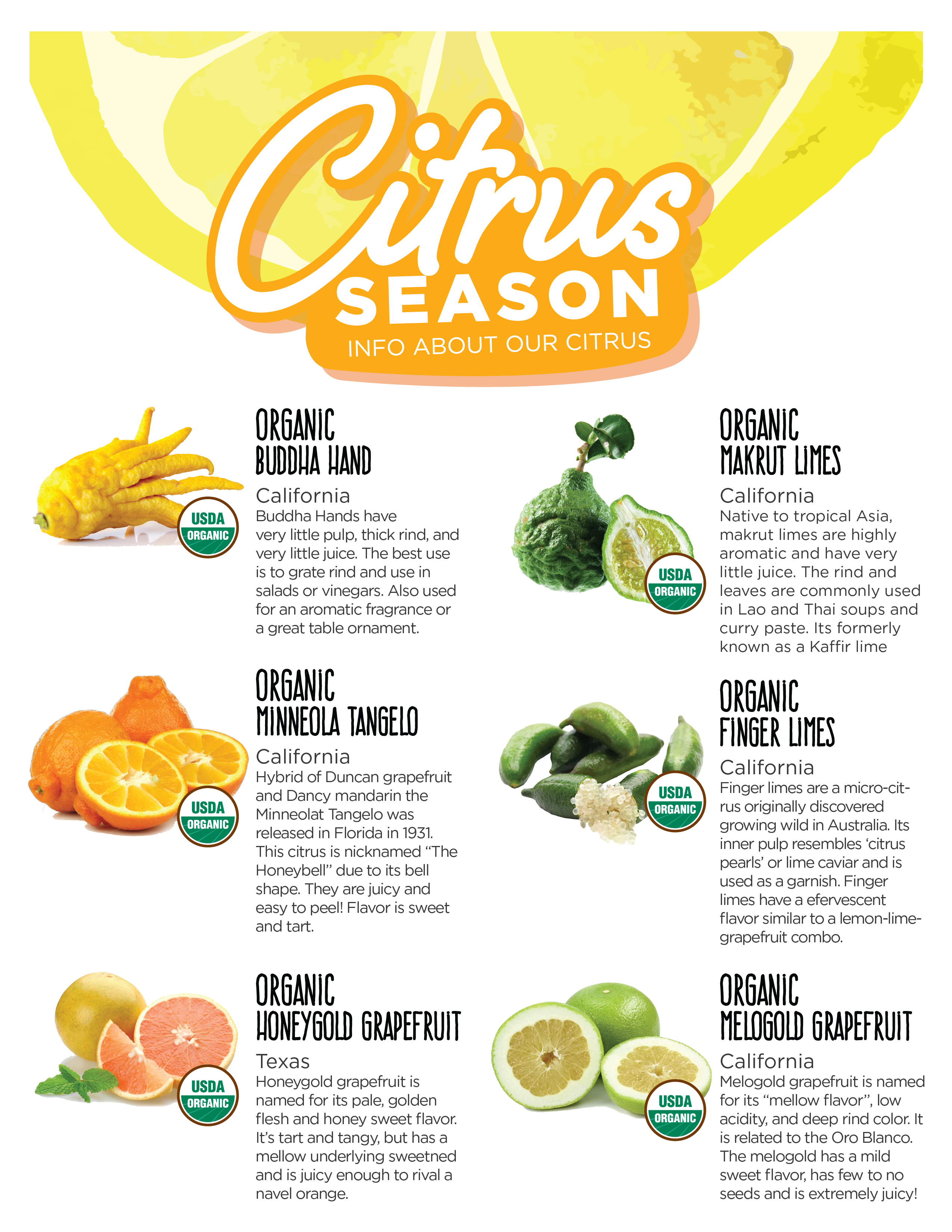
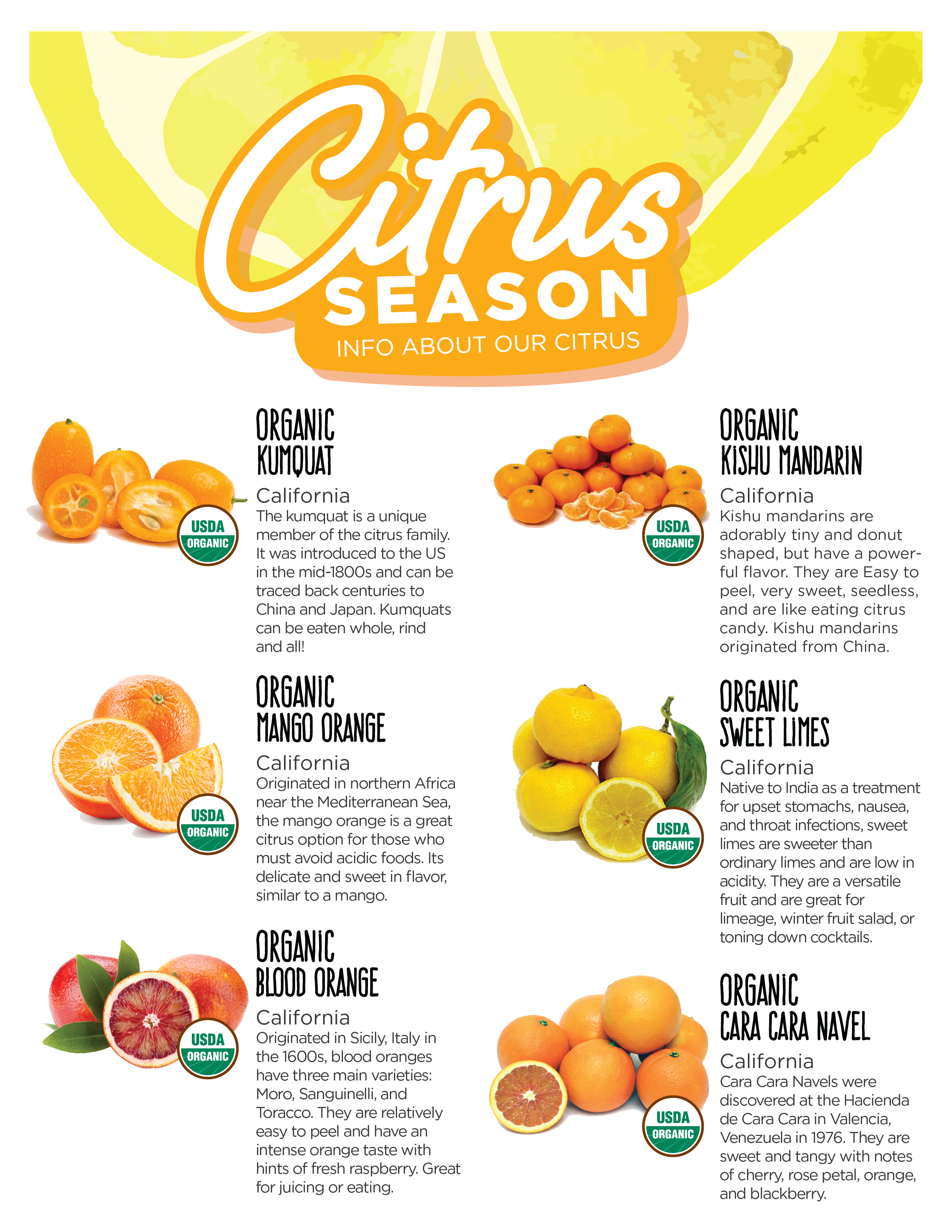
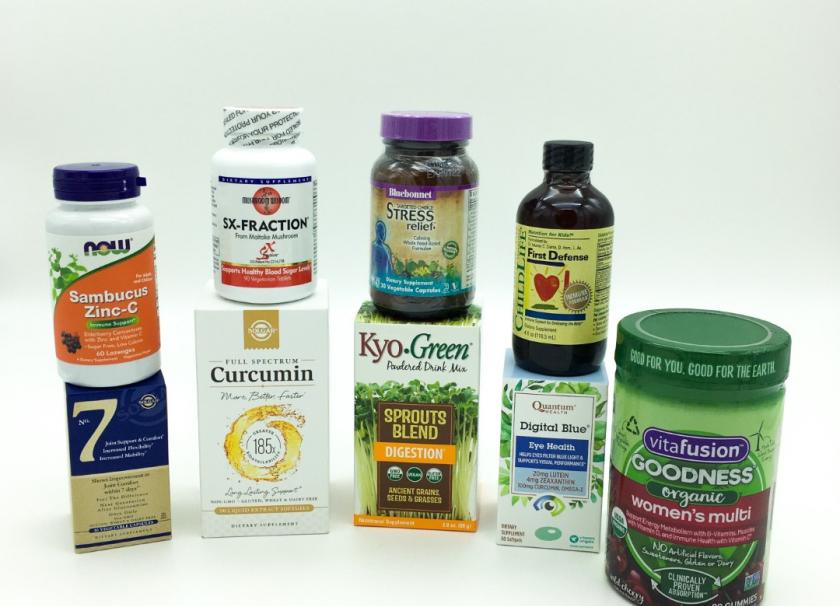
Taste for Life winter wellness giveaway
It's a month of giveaways from Taste for Life!
Giveaway #1 has finished up - so it's time for #2! This giveaway runs 1/27-2/2, so sign up below.
This package includes: NOW's Sabucus Zinc-C lozenges, Mushroom Wisdom's SX-Fraction, Bluebonnet's Stress Release formula, ChildLife's First Defense immune formula, Vitafusion's Organic Women's Multi vitamin, Quantum Health's Eye Health supplement, Kyo-Green Sprouts Blend digestion supplement, Solgar's full spectrum Curcumin supplement, and Solgar's No. 7 joint comfort supplement.

Rogue Co-ops College Scholarship
As part of the Rogue Co-ops, a group of Rogue Valley cooperative businesses that includes Ashland Food Co-op, Grange Co-op, Medford Food Co-op, and Rogue Credit Union, we're excited to offer a scholarship opportunity to local high school students planning on attending college.
The Rogue Co-ops have collectively funded a $2,000 scholarship (and Grange Co-op offers an additional eight $1,500 scholarships) for students (in public, private or home school settings) who meet the following requirements:

Become an Owner-Volunteer with the AFC Board
The AFC Board of Directors is looking for owner-volunteers for three board committees: the Owner Engagement Committee (OEC), Board Development Committee (BDC), and AFC Gives Committee.
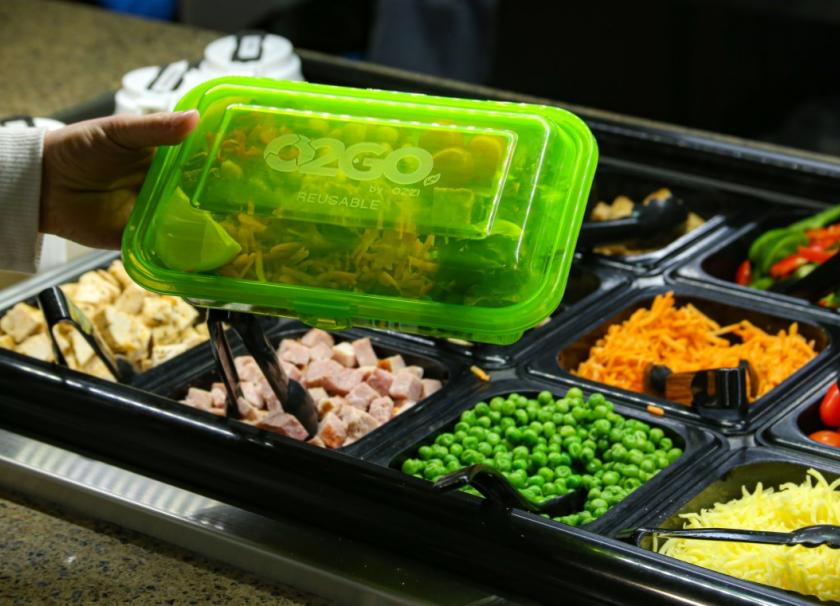
Sustainability Update: Building on a Strong Foundation
Sustainability Update
Our team has been working on many different projects throughout the year, taking great steps to fulfill our four sustainability goals. Our four goals to achieve by 2030 are: carbon neutrality, zero waste, eliminating toxic chemicals, and being a leader in our sustainable community. We look forward to our sustainable success in the upcoming decade!

2020: A vision for the future through Co-ops and local food
As the 2010s come to a close, the “20/20” eyesight analogy couldn’t be more appropriate for the new decade. With our eye on the future, there’s clearly a sense of urgency and awareness of the unique times we’re living in: a changing climate, increases in costs of living, and the shared pressures of a globalized world.
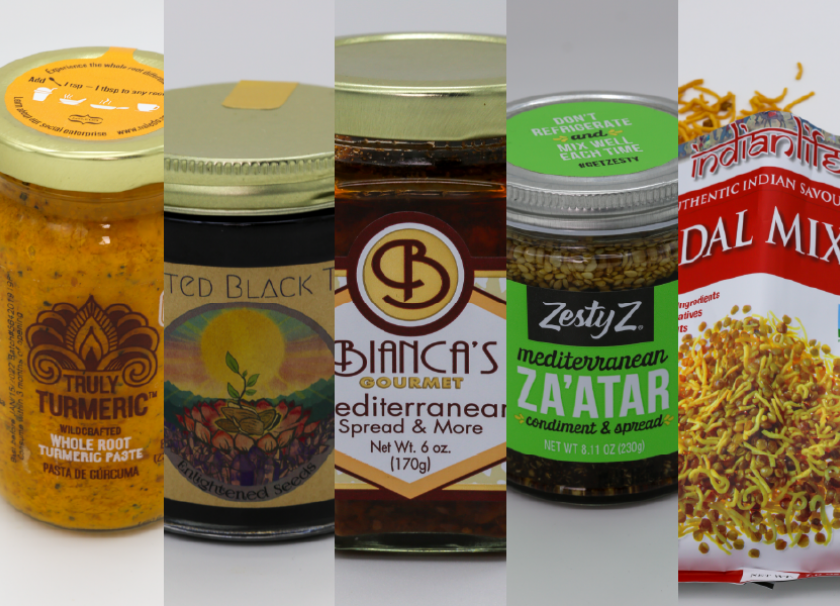
5 Items to Try: Spreads, Condiments & Snacks
It's fun trying new things! Here are five items you can find at the Co-op with a distinctly international flavor. Whether you're spreading them on some bread or naan, mixing up a salad dressing, or just want something salty and crunchy to snack on, try these out next time you want to elevate your dishes.
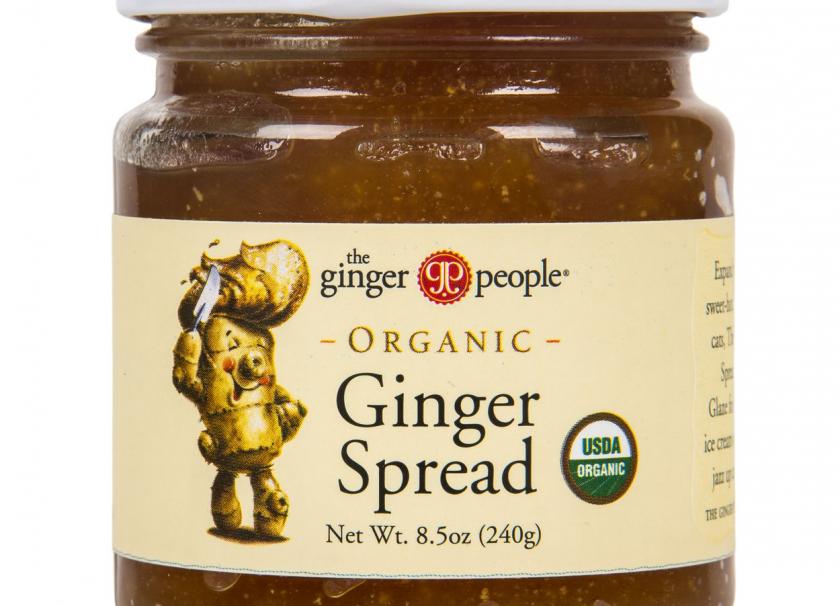
10 Ways to Enjoy: Ginger Spread
Sometimes you might come across a product at the Co-op and ask, "That looks good, but how in the heck can I use it in my cooking?" To answer that question, we picked this Ginger Spread made by The Ginger People (famous for their Gin-Gin candies). Grab a jar and try some of these unique applications in your own kitchen - or get inspired to utilize it in another way.
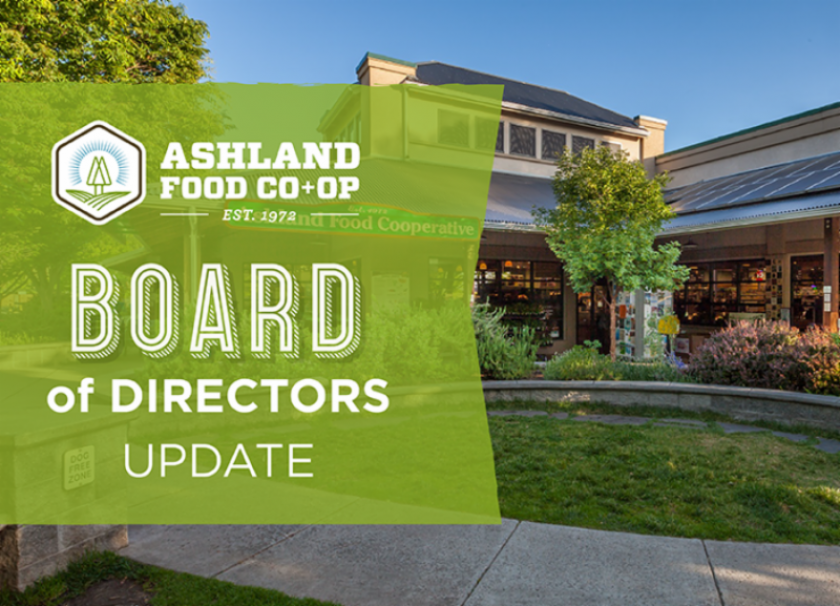
Meet Your Board: Melina Barker
Hello, Co-op members! My name is Melina Barker, and I joined the AFC Board of Directors this July. Since then, I have been busy learning about all the work the previous members have done to craft strategic goals to support the success of the AFC.
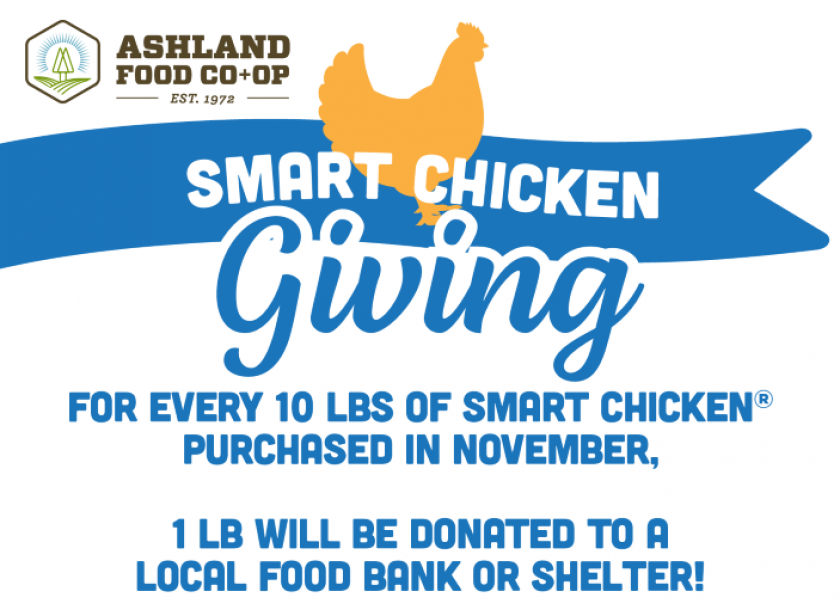
Smart Chicken® Holiday Giving in 2019
During the month of November, Co-op shoppers can nourish their own families and help fight hunger in the Rogue Valley.
Over the years, Smart Chicken® and Ashland Food Co-op have teamed up to donate thousands of pounds of chicken to ACCESS. Smart Chicken® will once again donate Smart Chicken® products based on the total volume that shoppers purchase at Ashland Food Co-op to ACCESS.
